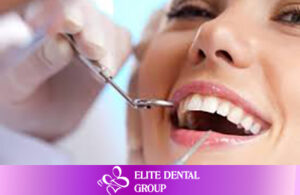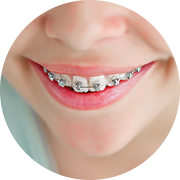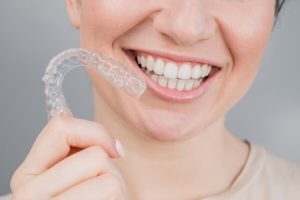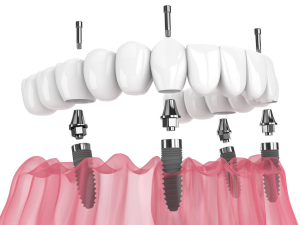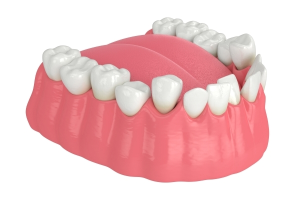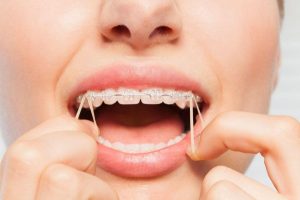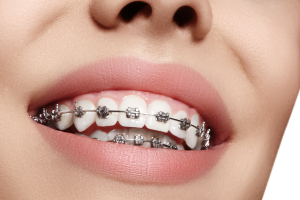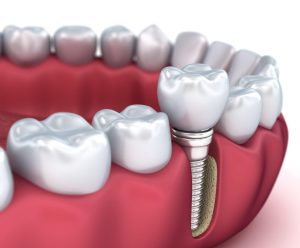Table of content
Up to 80% of children aged 4 to 8 years old suffer from dental cavities. The consequences of baby teeth decay in children not only affect their daily lives but also pose a risk of permanent tooth loss as they grow up. So, what should parents do to have a proper kids dental hygiene?
1. What are baby teeth and its advantages?
Baby teeth are an important ‘member,’ accompanying the child through the early moments of life, from their first bite of food to their first babble.
Baby teeth, also known as deciduous teeth or primary teeth, begin forming during the prenatal period. The development of baby teeth starts around the sixth week of gestation when tooth buds begin to form. Tooth development continues until a child is about 6 months old when the teeth start to erupt through the gum line.
The order and age of baby teeth eruption
– Central incisors: 6–12 months
– Lateral incisors: 9–16 months
– First molars: 13–19 months
– Canines (cuspid teeth): 16–23 months
– Second molars: 22–33 months
Advantages of baby teeth
Although baby teeth will eventually start to fall out around a child’s 5th year of life, the temporary presence of baby teeth has long-term benefits for a child’s oral health.
– Baby teeth play a crucial role in helping children learn to speak clearly and chew their food.
– Baby teeth serve as placeholders for permanent teeth to erupt in the correct positions.
Tooth replacement is the first milestone in a baby’s life, and this is also the time that parents need to keep close track of the baby’s dental development. 1. How does the process of the tooth replacement take place? It’s normal for children to undergo teeth replacement from 6–12 years…
2. Tooth decay and its consequences
Tooth decay is a condition in which the tooth enamel and dentin are damaged by bacteria present in plaque, residual food particles left on the teeth. Bacteria produce acids through metabolism of components in food, and when the oral environment has a pH < 5, it leads to demineralization reactions, gradually eroding the hard tissues of the teeth and causing tooth decay.
Besides tooth decay caused by bacteria, various factors can increase the risk of tooth decay in children, including enamel quality, tooth structure, tooth eruption status, a diet high in sugar, improper oral hygiene, oral health conditions, genetic factors, and more.
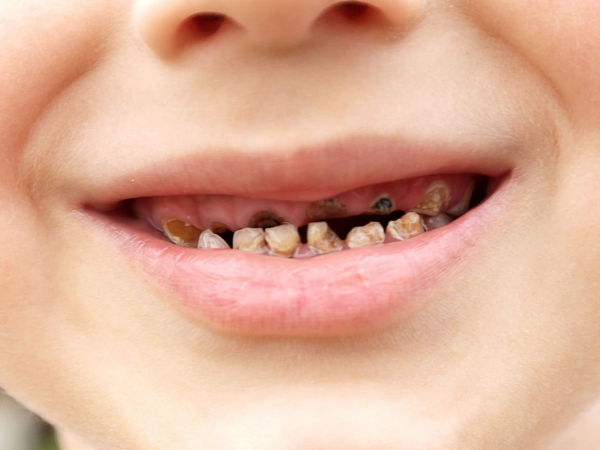
Tooth decay not only affects daily activities and quality of life but also has negative effects on a child’s health. Tooth decay in primary teeth affects the health, chewing, and psychological well-being of children, especially when it reaches a severe level and requires early extraction (before the age of 6), which can lead to permanent teeth growing in misaligned.
Related posts: > Groove fillings prevent tooth decay > What is a Tooth Filling? Everything you need to know
3. Ways to prevent tooth decay
To prevent tooth decay in children and protect their teeth, parents can consider the following ways:
Teach the child to brush their teeth correctly
From the time the child’s primary teeth start coming in, parents should teach them to brush their teeth correctly, using a technique that goes from inside to outside, for at least 2 minutes, twice a day. Additionally, choose suitable toothpaste for children with a formula that is sugar-free, contains Xylitol, and Active Fluoride to prevent tooth decay. Furthermore, parents should pay attention to replacing the child’s toothbrush every 2 months or when the bristles become stiff.
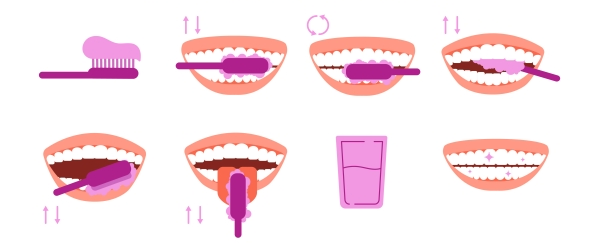
Establish a balanced and healthy diet
To prevent the growth of bacteria that can lead to tooth decay, parents should limit their child’s consumption of sweets, sugary drinks, and milk bottles before bedtime. In addition, mothers should adjust their child’s diet to include foods that are good for their teeth, such as yogurt, milk, filtered water, green vegetables, and fruits.
Encourage the child to rinse with saltwater
Saltwater has excellent disinfectant and anti-inflammatory properties. Therefore, rinsing with saltwater regularly can help the child prevent tooth decay. You only need to mix a small spoonful of salt with a little water, and then have the child rinse their mouth thoroughly. You can encourage the child to do this every night after brushing their teeth.
Pay attention to dental check-ups and cleanings for the child
Regular dental check-ups and cleanings for the child, which can be done 3 times a year or as needed based on the child’s dental health, are important to maintain good oral hygiene.
Take the child for regular dental check-ups
Parents should take their child for a dental check-up every 6 months so that the dentist can examine and promptly detect any tooth decay.

A general dental check up is a periodical dental care activity that should be maintained to help your teeth and gums stay healthy. Thanks to this habit, instead of treatment, you can prevent oral diseases, especially gum diseases. Why is this? 1. Have you ever had the following problems? When…
In general, untreated tooth decay in children can affect their chewing ability, speech, and the development of their teeth. Therefore, if you notice any signs of tooth decay in your child, it’s important to seek treatment promptly without delay.
4. Elite Dental – Specialized Pediatric Dentistry Center
With a specialized center for General Dentistry and a team of experienced dentists who graduated from prestigious universities both domestically and internationally, Elite Dental proudly stands as one of the best dental clinics in Ho Chi Minh City.
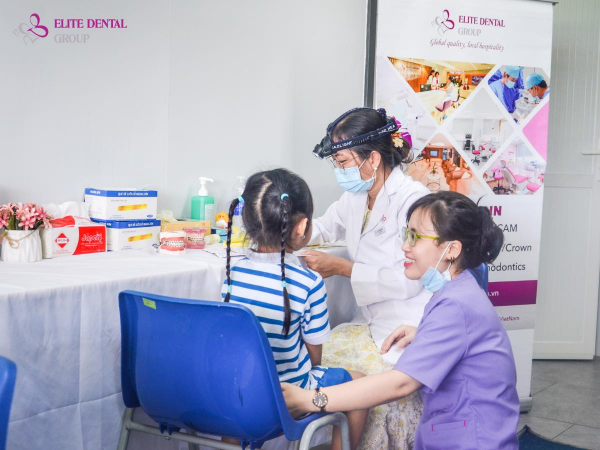

In addition to our deep expertise in orthodontics and implant procedures, Elite Dental is highly committed to caring for the oral health of children. We understand that proper oral care from an early age is essential for children to have healthy and beautiful teeth as they grow up.
In our cozy and comfortable environment, our dentists have thoughtfully designed a small, delightful play area with numerous fun activities for children.
This not only makes the experience more enjoyable for children, helping them forget the usual fear associated with visiting the dentist, but also provides peace of mind for parents, encouraging them to take even better care of their children’s oral health.
We hope that the information provided by Elite Dental here has helped parents gain more knowledge about caring for their children’s milk teeth. If you have any further questions, please do not hesitate to contact Elite for more detailed guidance.



